BEGINNING OF THE END?
What the Punggol East result says and doesn’t say about the future.
Predictably, the Workers’ Party’s decisive victory in Punggol East has prompted speculation about whether this spells doom for the People’s Action Party in the 2015/16 General Election.
Such thoughts – wishful or alarmist, depending on your point of view – are unrealistic. First, GRCs do not behave like single seats. It is much harder to produce big swings in mega-constituencies than in a ward like Punggol East – a fact overlooked by Alex Au in his thought experiment on the effect of a national 10-point swing.
More importantly, such extrapolation overlooks one of the main characteristics that the Singapore electorate has revealed about itself in election after election. It wants opposition – but not just any opposition. Parties and pundits have consistently underestimated how discerning the electorate will be. In the run-up to last weekend’s poll, we wondered if Kenneth Jeyaretnam and Desmond Lim would split the opposition vote or confound swing voters so much that they would eventually stick with the PAP. In the end, the lack of opposition unity didn’t matter because voters made up for it with their singular focus on the most serious opposition team.
We can expect the number of high-quality opposition candidates to grow dramatically by the next GE, but we still won’t see them blanketing the whole island. For every constituency with a Lee Li Lian or Chen Show Mao taking on the PAP, there will be one or two others where the opposition candidates are just so-so or just loco. These individuals are not going to get the kind of swing that the WP enjoyed over the weekend.
A scenario that is more sober but still gamechanging is a major increase in opposition representation, but with the PAP still firmly in power. Arguably, this is the endpoint that Singapore’s middle ground has in mind. The WP leadership seems to think so, too. Its response to its latest victory dismissed talk of replacing the PAP, positioning itself as an effective check to keep the ruling party on its toes.
The PAP has tried to argue that it already has enough incentive to perform – primarily from its innate desire to serve – and that there are enough alternative voices in Parliament, thanks not only to the elected MPs but also NCMPs and NMPs.
If Punggol East voters speak for the country, it’s clear that Singaporeans don’t quite agree with the PAP that the right equilibrium has already been reached. Until an acceptable balance is achieved, we’ll continue to see the electorate practise a kind of affirmative action in favour of the opposition, with its candidates constantly given generous benefit of the doubt while PAP candidates are punished for verbal slips, or even just for their facial expressions (the “arrogant smirk” that Yawning Bread detected on Koh Poo Koon’s face might have been read as cool confidence, and the “fixed plastic smile” as understandable nervousness in front of the cameras, had Koh been wearing the Hammer badge).
What then is the “right” number of opposition MPs? My guess is that it is much higher than the current 8 percent of Parliamentary seats, but maybe not as high as 40 percent – the proportion of Singaporeans who voted for the opposition in the last election. As the number of opposition MPs rises beyond 20-30, you’ll see more voters wary of a “freak” result ousting the PAP entirely, and becoming more conservative. You could also see the PAP reforming itself dramatically, giving voters less reason to reject its candidates.
If the opposition grows to occupy more than 40 percent of the House, it would be because of a major slide in the performance of the PAP, which is of course not beyond the realm of possibility.
Even if the opposition collectively claims more than half of the seats, this may not spell the end of the PAP in government. It depends on whether the opposition parties are willing to form a coalition. As the Punggol East campaign showed, nobody should assume that just because opposition parties are repelled by the PAP, they are attracted to one another.
I don’t think it’s preordained that if the WP had to choose between the SDP and the PAP in a hung Parliament, it will opt for SDP. It could instead enter a grand coalition with the men in white, in return for a few Cabinet positions and legislative reforms, say.
In the interest of full disclosure, I should at this point declare that I am one of those who totally misread the Punggol East by-election, believing from start to end that the PAP would retain the seat. For more reliable predictions of future election outcomes, visit your local bookie.
But even if the eventual numbers are anyone’s guess, it is possible to make fairly firm non-quantitative predictions about how electoral politics will evolve over the next few years. Some of the dynamics were already apparent after the GE and last year’s Hougang by-election (see my earlier articles here and here). In addition, there are a couple of other developments to look out for.
First, we can expect to see the Workers’ Party attract several heavyweight candidates – including members of the establishment with some stature. This is a no-brainer, because the signs were already there in 2011. The WP’s most significant gain from Punggol East may not be the one additional seat, but the several fence-sitting, high-calibre potential candidates whose last remaining doubts about the joining the party will now evaporate.
Second, we will see the PAP torn between tactics. In the battle for Aljunied GRC, the PAP offered multi-million-dollar upgrading inducements, tried to tar Chen Show Mao as a foreigner and threatened voters that they would regret and repent if they kicked out the PAP. Voters kicked out the PAP, giving the WP 54.7 percent.
In the battle for Punggol East, the PAP fought an unusually clean campaign, with no personal attacks, bribes or threats. And? Voters kicked out the PAP, giving the WP 54.5 percent. Two different tactics, same result. Unfortunately, there goes the theory that if the PAP was just more pleasant, voters would like it more.
While the PAP is sure that its broad policy directions are in Singaporeans’ best long-term interests and that they will eventually realise it, you can hardly blame the party if it feels at a loss over what political tactics will keep it in power. Expect an internal debate between hardliners and moderates (though, given the party’s strong cohesion, we may never hear about it).
Thankfully, even the hardliners probably don’t believe that the old tactics of acting tough with voters can ever work again. However, how they treat opposition politicians, civil society activists and other real or imagined opponents is another issue.
Frustrated at the apparent lack of headway it’s making in public debates, some government leaders may decide that they have been too nice to their opponents. If they can’t control the demand for alternatives, they might be tempted to choke its supply, raising the barriers to entry for serious individuals who are tempted to join the opposition. I’d be happy to be proven wrong – but we should not be surprised if things get ugly.
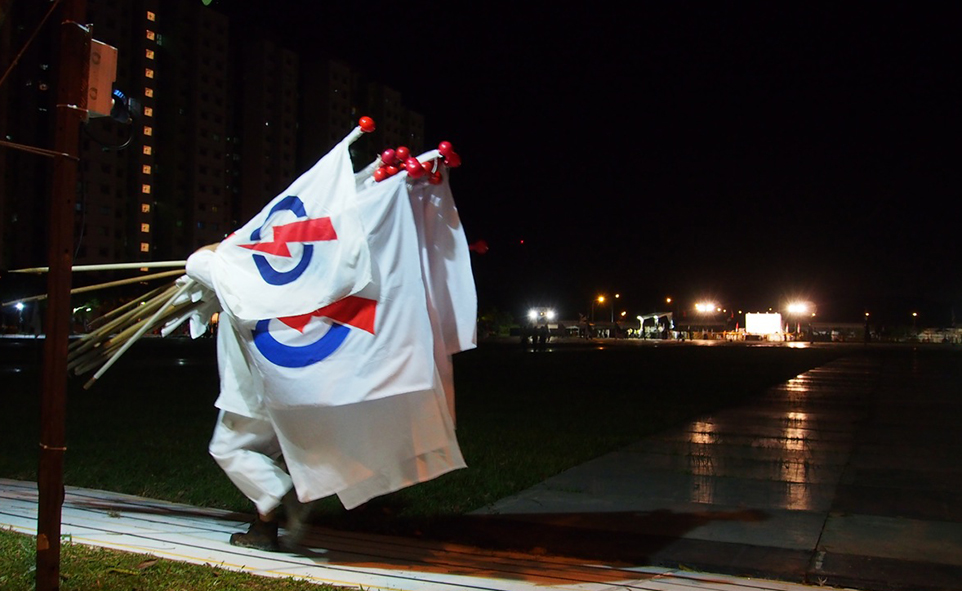
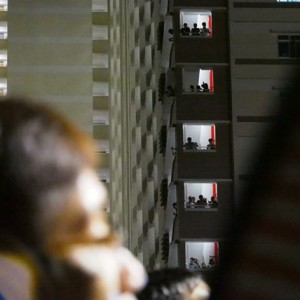
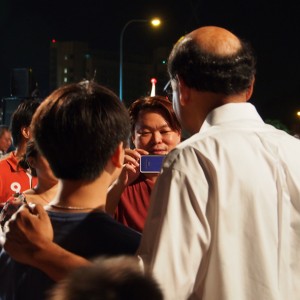
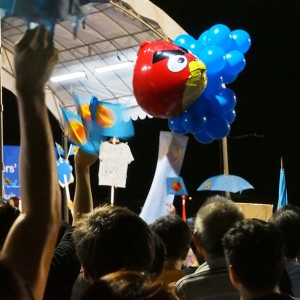
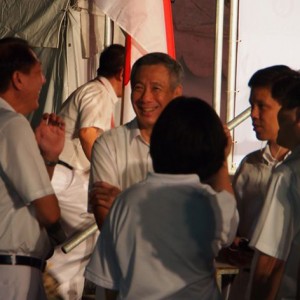

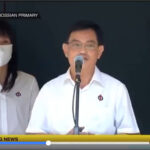

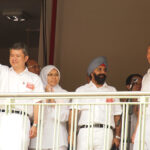
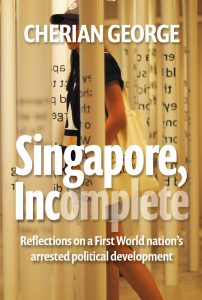
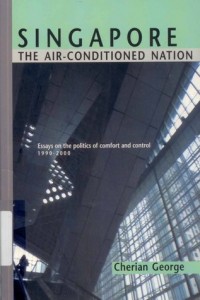
David
Couple of points –
Your point about GRCs seem careless and weak. Tampines GRC produced a 11.3 swing and East Coast produced a 9.1 swing, with the Tampines NSP slate being pretty much a so so to loco slate – so statistically I’m not sure you’re I would agree with GRC being “unswingable”.
The only difference is it is harder to find 4 good candidates, and similarly harder to find 4 weak opponents. Either one of these is needed to bring it past the 50 percent tipping point. Aljunied saw a strong slate for WP, Punggol East and Hougang saw weak PAP candidates borne out of different circumstances (perennial loser who weeped and land grabbed through PA; parachuted elite post Palmer-gate) Likewise Tampines had the much vilified MBT, while East Coast was led by Gerald Giam against the likes of “I feel very rich” LSS – these weren’t strategy problems – these were also PAP candidates weak in professional performance, hoping not to meet a strong enough opponent.
And your whole article is premised on political strategy – that PAP needs to find the right “strategy”. If PAP is sticking to a liberal immigration policy; heavily growth focused economic plan and overworked infrastructure and housing, no amount of “strategy” will help.
It will then likely depend on WP finding the right talents to puncture mistake-making PAP candidates.
Eumeng
Now, this is good analysis, David. The PAP as long as it continues to put its head in the sand and be in denial that its policies (may be well meaning) are faulty, it will not even know who or what will come to bite it. It may not even be the WP. Just watch.
Dave
“It is not the strongest of the species that survives, nor the most intelligent that survives. It is the one that is the most adaptable to change.” Charles Darwin
Emeritus David Teo
Precisely. The most adaptable to the aspirations of the electorate. DT
QPC
I think the gorilla in the room is the announcement that this Island state needs a target population of 7 million. Coming just in the week prior to the by election, it certainly begs some questions. Was the Ruling Party testing the waters? Was their candidate just cannon fodder?
Alex
QPC, 7 million population is a speculated number by DBS Vickers, it is not an announcement by the government.
http://www.reuters.com/article/2013/01/18/markets-singapore-stocksnews-population-idUSL4N0AN3GR20130118
Dave,
As a working man in Singapore, I also feel very rich looking at my CPF because it earns 2.5% interest per annum…..and I don’t think LSS is richer than us because there is a S$5000 cap on monthly CPF contribution.
Jentrified Citizen
David- your analysis is more on point and in sync with how the people feel. Crafty Srategies serve to prop up weak governments to win votes while getting the policies right win hearts. and if things really get ugly as Cherian suspects, then rhey should be prepared for the people’s wrath. Times have changed.
Kwan Yue Keng
Quoting Cherian George “While the PAP is sure that its broad policy directions are in Singaporeans’ best long-term interests and that they will eventually realise it, you can hardly blame the party if it feels at a loss over what political tactics will keep it in power” This is PAP-Speak at its most thick-headed obstinacy. Singaporeans have sufferred the failure of past PAP policies (Just speak to those parents who sterilised themselves in the Stop-at-Two policy – whose effects were only felt and manifested 20-years down the road). How to expect Singaporeans to trust the “long-term interests” of present PAP policies? Singaporeans should keep voting in enough opposition (maybe up to 40% of seats) so that checks-and-balances will be instituionalised, that surely is the best safeguard. I feel that Singaporeans “will eventually realise” that this safeguard is better that blindly trusting PAP “long term interest” of their policies.
But Mr.GC may have another point, which I feel very in tune with – and that is , even before the PAP loses 40% of parliamentary seats “things get ugly” – they will wield the “knuckle-dusters” and “hatchet” and come charging in once again in an Operations-Cold-Store style effort to shore up their political power. I think Mr.GC will be very happy to see that day come. Methinks, if the PAP were to really do it, then it is looking like very last ditch effort, and even if PAP were to emerge victorious, it would be a Pyrrhic victory!
Cherian George
Dear Mr Kwan, I’m disappointed you think I’d be happy to see the day come when “things get ugly” or even welcome another Operation Cold Store. This is the typical politician’s tendency (both on PAP side and opposition side) to shoot the messenger. Making this prediction doesn’t mean I’d be happy to see it happen. After all, if things get ugly, history shows that the media and academics will also be in the PAP’s firing line.
Alex
meaning to say — any salary earned above S$5000 is not subject to CPF deductions and contributions.
Spock
Most of the post electoral analysis has scrap goated high cost of living, congestion and income inequality.
I wonder how much of an impact the AIM controversy had.
Speaking purely as a voter, I was probably one of the most dedicated PAP supporter a couple months back. Post-AIM, I’ve started to question the PAP’s raison d’etre of clean, efficient government.
A couple of general elections from now, it would be fairly ironic if the WP came to power on a platform of competent, unwasteful good governance.
jerry
It seems plainly clear to me that Cherian Geroge is embarking on a political showdown with his personal ideology against that of the governing PAP, albeit in the name of freedom of speech .
If you are passionate and self-proclaimed “know-it-all” character, than you should be the “stand-up Guy and present yourself as a credible candidate in the elections. My concern and question is why you bother to pain painstakingly analyze and criticize the PAP election results in your previous postings and yet hide behind the curtain? Anyone would expect you to be truthful to your passion and conviction as you put them into action, not mere’ talk loud but no action ….’
Cherian George
Jerry, I read your comment with a sense of deja vu. The last time I saw similar views being expressed was 20 years ago, when the government told Singaporeans that only political parties had a right to be engaged in politics. A group of concerned citizens (including me) challenged that view by forming the Roundtable, as a political but non-partisan civic group. I think even the government has evolved in its thinking, so it is quite surprising to see an ordinary Singaporean (if you are just an ordinary Singaporean) espouse such a view.
Of course, if you feel that you must shut up about any strongly held views unless you run in elections, that is your right. But if I choose to be all talk and no action, as you put it, that is my right, too. I have my reasons for not joining any political party or running in elections. Top of the list is a practical problem: I would be a liability to any party I join. I probably would not obey the party leadership and would be among the first to contradict any party line and to point out its mistakes publicly. I value the freedom to keep an open mind, so there is also a high chance that in the midst of an election campaign, I would suddenly agree with my opponent.
Second, I think that armchair critics have a role to play. Not a big role – and we shouldn’t take ourselves too seriously – but a role nonetheless. I value opinionated movie critics even if they don’t know how to produce a movie; I respect good restaurant reviewers even if they can’t cook themselves; and I doubt that my favourite soccer writers were champion footballers. In the same way, I see no contradiction in being a passionate commentator on politics while staying on the sidelines of the game. If you disagree, I suggest you just stop reading me. Since you are a disappointed reader, I would offer to give you your money back, except that I didn’t charge you in the first place. And since you are not impressed by my lack of action, you need never give me your vote – in fact, I will never ask for it.
ZJ
Thanks for the article, Cherian.
Growing up as a schoolboy I distinctly remember being unable, despite multiple consultations of the dictionary, to grasp the meaning of the word “Politics”. Now I understand that apart from a deficient intelligence the major reason for this was, of course, having been brought up in a highly depoliciticised environment. In fact, I now understand the word well enough (I hope) to see that the term ‘depoliticised’ can in fact have very misleading connotations; the biggest of these is the image that people can be ‘politicised’ one moment and ‘depoliticised’ the next, like a switch to be flicked on and off, and worse still, that once ‘depoliticised’ they remain in that state with all the innocence of a sleeping princess, needing the kiss of social upheaval/revolution/crisis to wake them from their stupor. but if man is foremost a political creature, and Politics permeates every moment of our lives as long as we live in society, whether we are on a podium at a rally or discussing where to have lunch (no, seriously), then it is quite amazing that people can go about their lives without a conscious awareness of their political needs (i.e. are politically apathetic). but even the most ardently apathetic person does contribute to the political situation, only he does so in a negative way by expecting things of the “System” and reacting if the series of transactions (which life has long since become reduced to) do not go well. And this is precisely the distasteful position the PAP find itself in now—either allow for political liberalisation or continue dancing with an ever more erratic and belligerent bear, a creature of its own making. My sense is that something will have to give, if not now, then later. It is why politics is so fascinating.